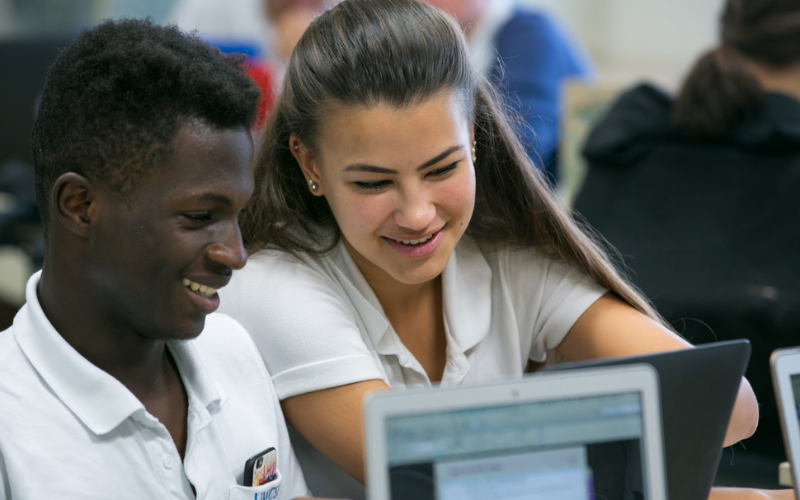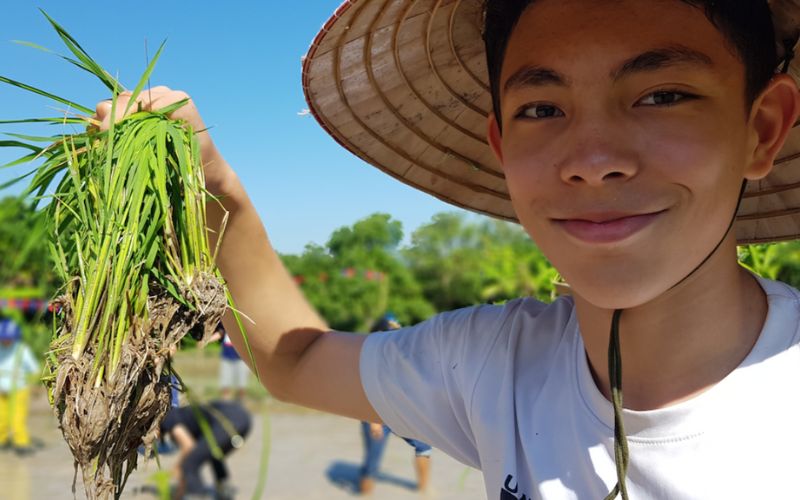UWC South East Asia
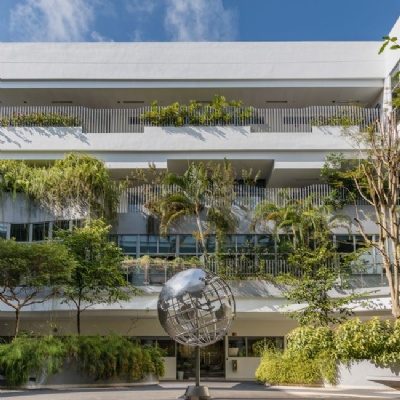
Singapore
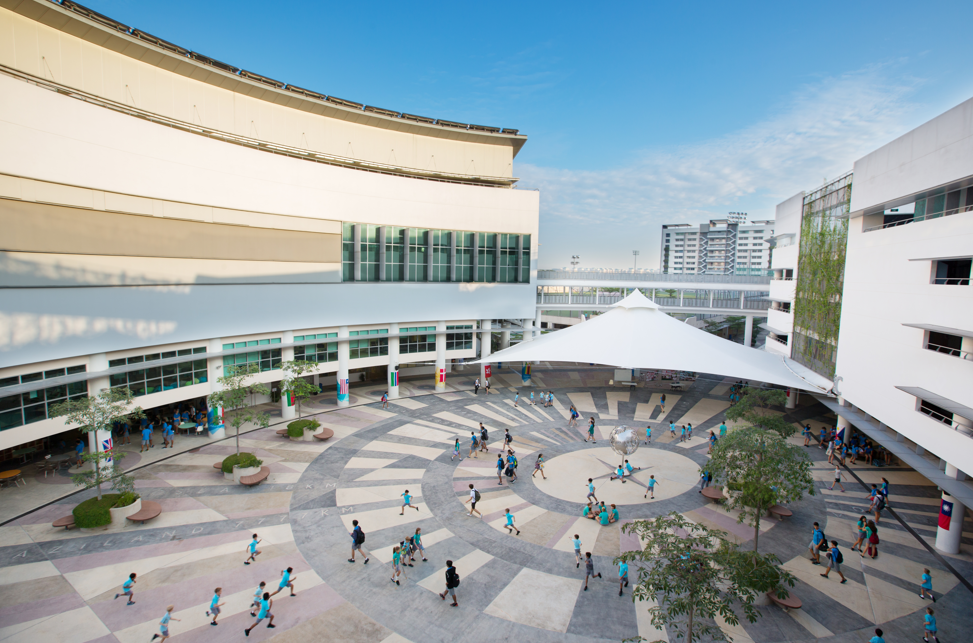 6,147 students, aged 4 to 18 years
6,147 students, aged 4 to 18 years- Founded - 1971
UWC South East Asia (UWCSEA) became a full member of the UWC movement in 1975. In 1998, the college expanded to include a younger years programme accepting students from 4 years old to become a K-12 school. In 2011, a second campus opened, making UWCSEA the largest of the UWC colleges with students from more than 100 countries and with more than 90 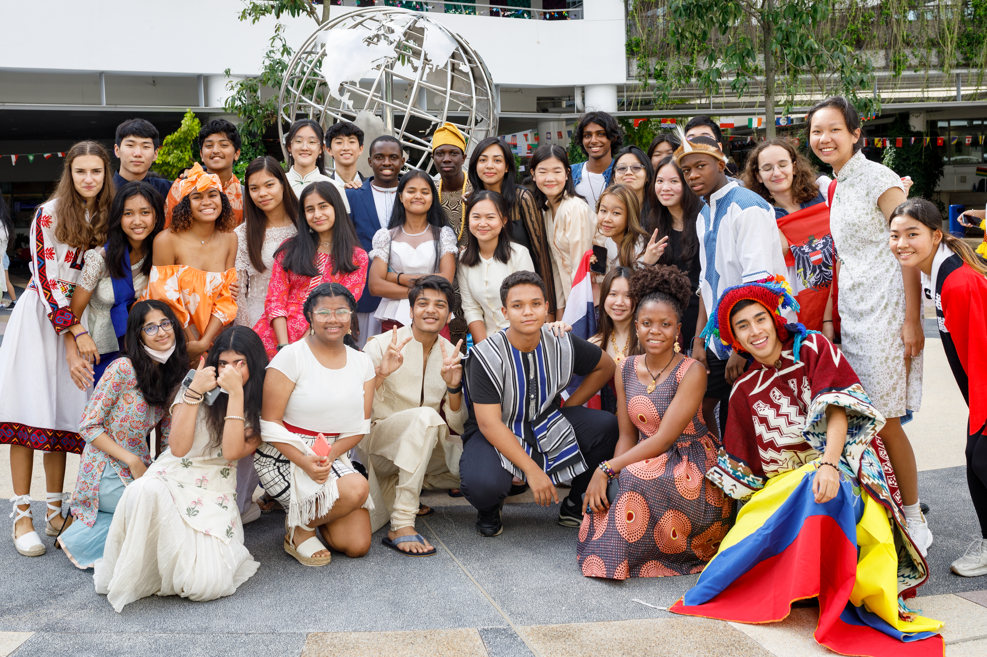 languages spoken. UWCSEA offers a K-12 holistic and concept-based curriculum. The International Baccalaureate (IB) is offered in G11-12 and applications are open for day students and for residential boarding from G8.
languages spoken. UWCSEA offers a K-12 holistic and concept-based curriculum. The International Baccalaureate (IB) is offered in G11-12 and applications are open for day students and for residential boarding from G8.
Three unique features
Diversity: Students are selected based on deliberate diversity, including factors such as culture and life experiences. The UWCSEA Learning Programme provides an ideal platform for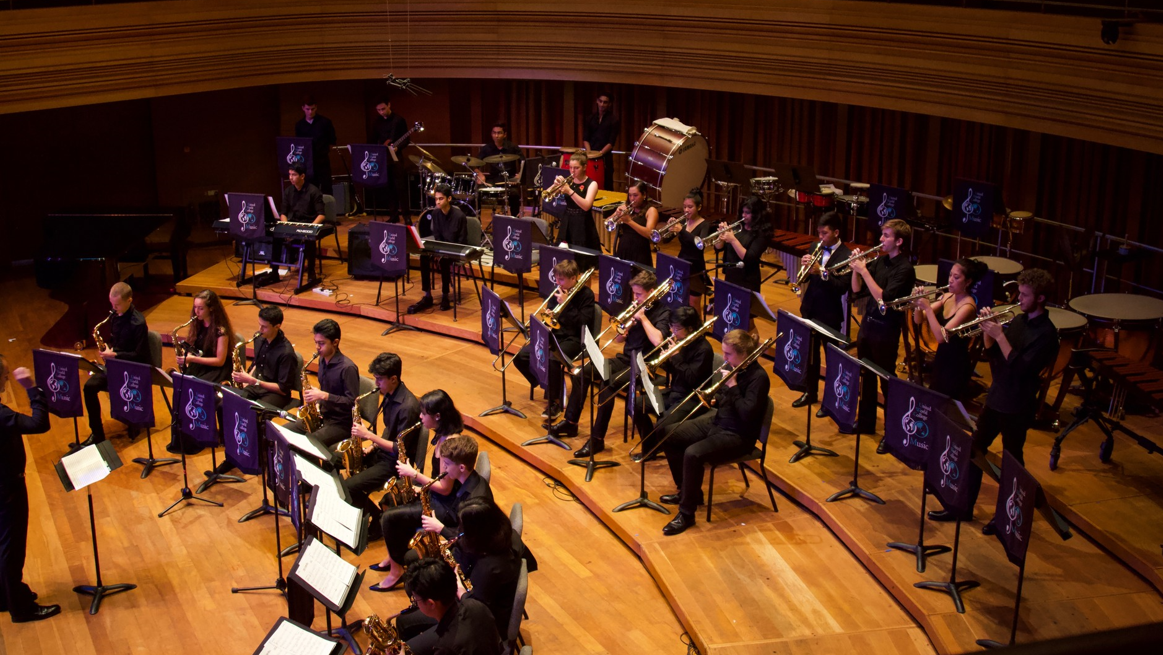 the development of intercultural and interpersonal understanding contributing to a sense of belonging for all in the community.
the development of intercultural and interpersonal understanding contributing to a sense of belonging for all in the community.
Vibrant Location: Situated in the city-state of Singapore, UWCSEA leverages its central location as a global hub in Asia. Students benefit from meaningful local community connections woven into their learning experiences. Students 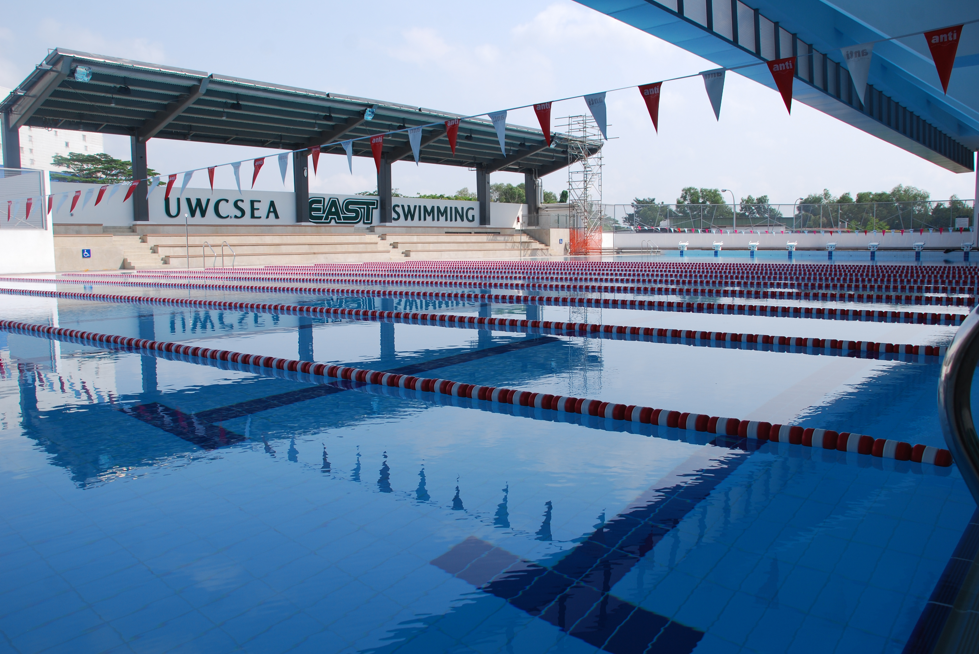 also have the opportunity to travel to neighbouring countries throughout Asia as part of the Outdoor Education programme (OED).
also have the opportunity to travel to neighbouring countries throughout Asia as part of the Outdoor Education programme (OED).
K-12 concept-based curriculum: The holistic learning programme consists of five interlinking elements: academics, activities, outdoor education, personal and social education and service. The bespoke curriculum from K1 to Grade 12 leads learners through interdisciplinary and project-based learning in preparation for the IBDP.
Academic curriculum
In their final two years, students follow the International Baccalaureate Diploma Programme (IBDP), which is made up of three core components and six subject groups.
Average class size: 22
International Baccalaureate Diploma Programme
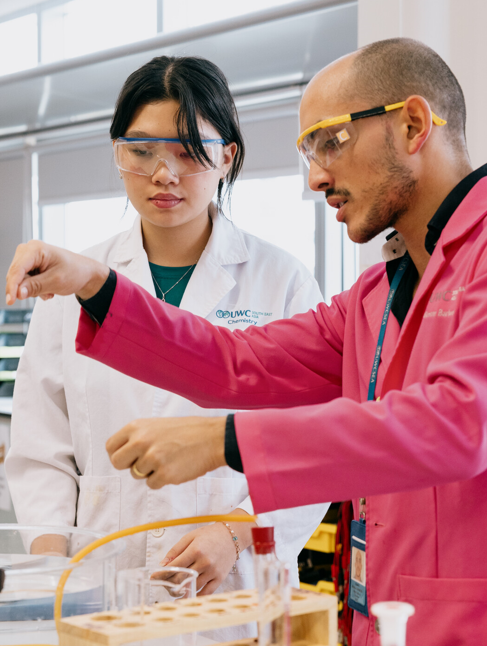 Core components
Core components
- Theory of Knowledge: students reflect on the nature of knowledge and on how we know what we claim to know.
- The Extended Essay: an independent, self-directed piece of research, finishing with a 4,000-word paper.
- Creativity, Activity, Service (CAS): students take part in a range of experiences and at least one project.
Subjects
- Language A (first language): English Language and Literature; English Literature; Chinese Language and Literature; Dutch Language and Literature*; French Language and Literature; German Language and
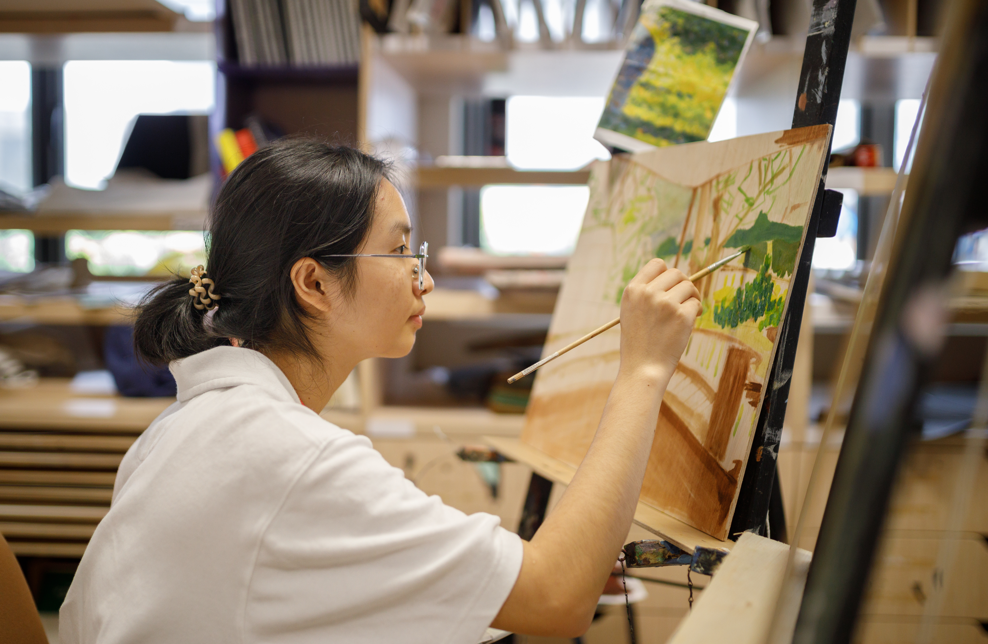 Literature*; Hindi Literature; Japanese Literature; Korean Literature*; Spanish Language and Literature and School Supported Language
Literature*; Hindi Literature; Japanese Literature; Korean Literature*; Spanish Language and Literature and School Supported Language - Language B (acquisition): English; Chinese; French; German*; Japanese*; Spanish; or French ab initio; Mandarin ab initio; Spanish ab initio
- Individuals and Societies: Business Management; Economics; Geography; Global Politics; History; Philosophy; Psychology
- Sciences: Biology, Chemistry, Physics, Computer Science, Design Technology, Sports Exercise & Health
- Mathematics: Mathematics: Analysis & Approaches, Mathematics: Applications & Interpretation
- The Arts: Visual Arts, Theatre, Dance, Film, Music
*subject is offered at Dover Campus only
Systems Transformation Pathway
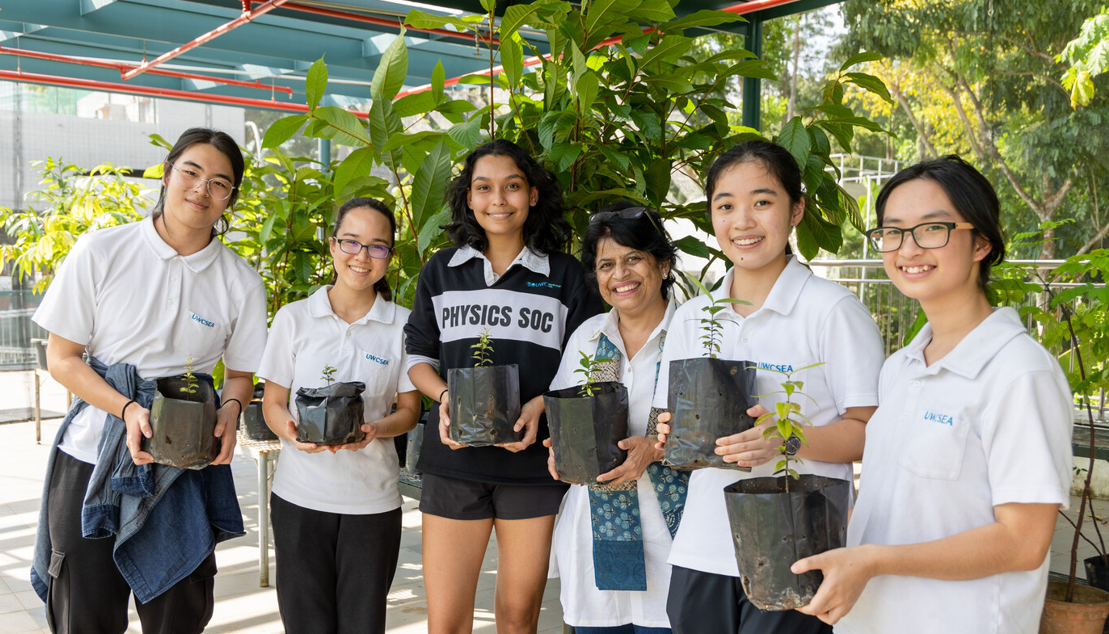 IB Systems Transformation: Leadership for Change is an innovative new course, carefully designed by passionate and experienced educators in partnership with the IB. It is for students looking for further challenges and authentic, project-based experiences in their learning journey. This course will also help shift the IB Diploma worldwide towards a more flexible model with more real-world learning, more authentic assessment and greater student agency.
IB Systems Transformation: Leadership for Change is an innovative new course, carefully designed by passionate and experienced educators in partnership with the IB. It is for students looking for further challenges and authentic, project-based experiences in their learning journey. This course will also help shift the IB Diploma worldwide towards a more flexible model with more real-world learning, more authentic assessment and greater student agency.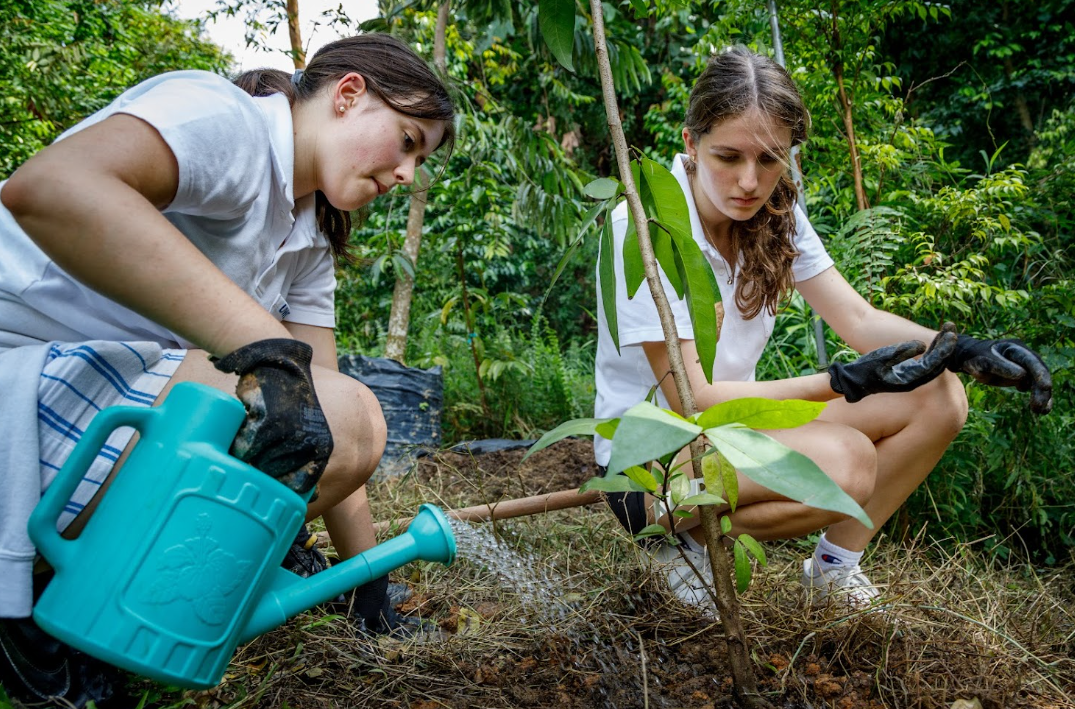
The Systems Transformation Pathway focuses on three areas:
- Sustainability
- Intercultural understanding
- Peace building
Through project-based learning students explore how to 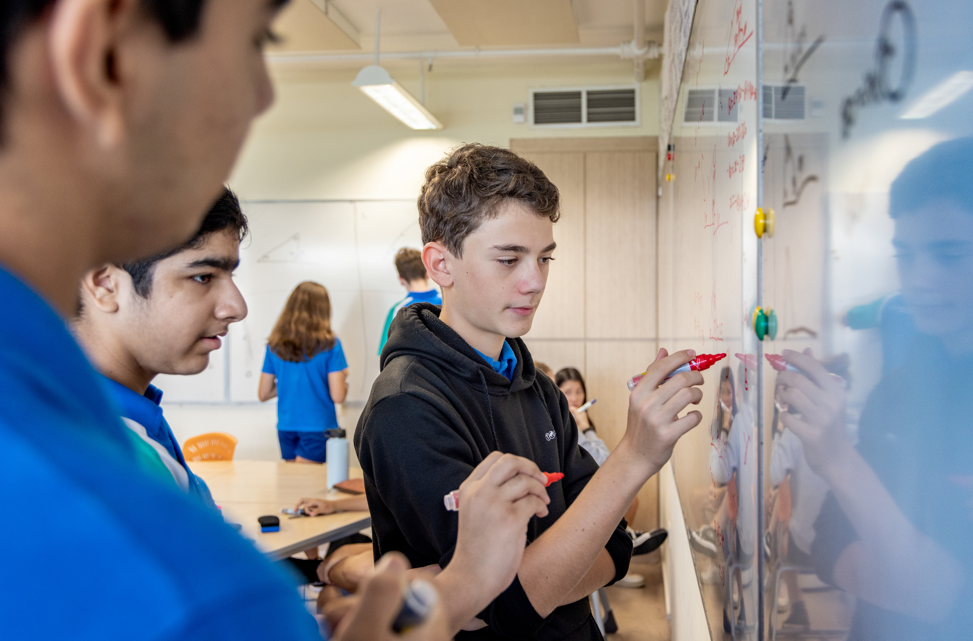 connect and lead others; how to understand and navigate complex systems; and how to be resilient and adaptable in the face of challenges and failures. There are five distinct areas in which skills and capabilities will be taught and assessed in this course. These are: Project and Change Management; Leadership; Systems Thinking; Design Thinking; and Changemaker Mindsets.
connect and lead others; how to understand and navigate complex systems; and how to be resilient and adaptable in the face of challenges and failures. There are five distinct areas in which skills and capabilities will be taught and assessed in this course. These are: Project and Change Management; Leadership; Systems Thinking; Design Thinking; and Changemaker Mindsets.
The IB Systems Transformation: Leadership for Change is assessed entirely by coursework, balanced over the two years of the programme.
Co-curricular
![]() All IBDP students at UWC complete a co-curricular programme called Creativity, Activity and Service (CAS) - an integral part of the IB qualification. Students get the opportunity to choose a physical, a creative and a social service activity.
All IBDP students at UWC complete a co-curricular programme called Creativity, Activity and Service (CAS) - an integral part of the IB qualification. Students get the opportunity to choose a physical, a creative and a social service activity.
Students are involved in CAS for the whole of their IB Diploma and ideally spend 3-4 hours a week engaged in an extracurricular pursuit. Many experiences involve a benefit to the community and encourage students to consider global issues and the ethical outcomes of their participation.
Physical activities:
- Badminton
- Basketball
- Climbing
- Cricket
- Cross Country
- Football
- Golf
- Gymnastics
- Hockey
- Netball
- Rugby
- Sailing
- Softball
- Swimming
- Tennis
- Touch Rugby
- Track and Field
- Ultimate Frisbee
- Volleyball
Creative activities:
- Drama Productions
- Instrumental Teaching Programme
- Ensembles
- Choirs
- Various Clubs
- Student-led publications
- Alumni Council
- Ambassadors
- Global Concerns Executives
- Initiative for Peace
- Model United Nations
- National Youth Achievement Award
- Round Square Committees
- Sports Councils
- Student Councils
Social service:
- Elderly care
- Persons with disabilities
- Learning Support
- Programmes for disadvantaged children
- Foreign domestic workers
- Adults in long-term hospice care
- Global Concerns
- Initiative for Peace
- Model United Nations
- National Youth Achievement Award
- Round Square Committees
- Sports Councils
- Student Councils
- Student-led publications
- Green Campus initiatives
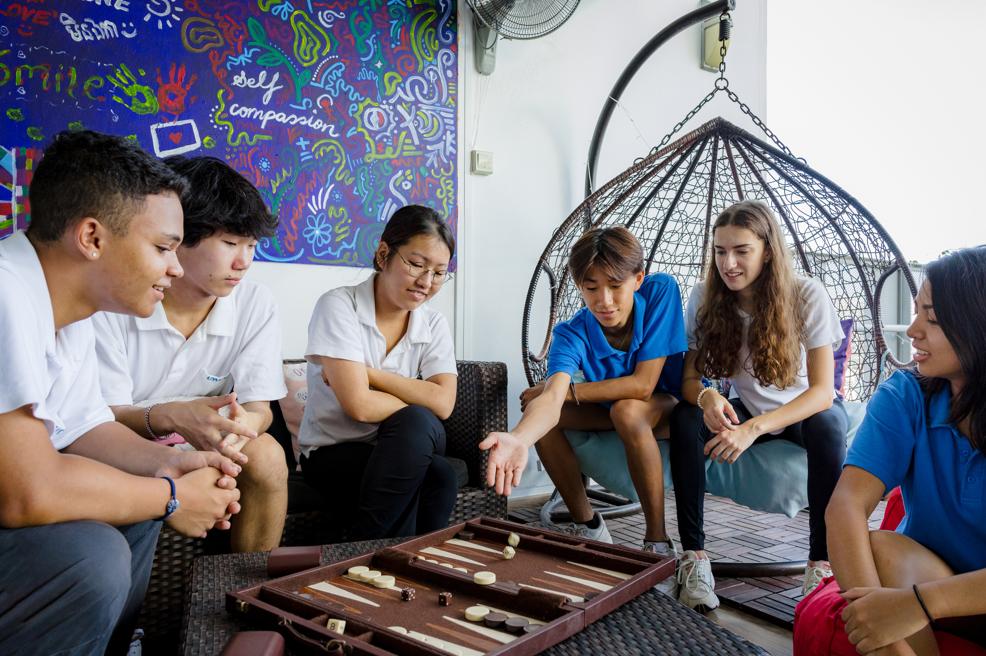 Facilities and residences
Facilities and residences
UWCSEA campuses offer exceptional facilities suited to the hands-on and technologically integrated learning programme. Equipped with state-of-the-art technology and tools, both campuses provide an environment to support all five elements of our learning programme.
Facilities
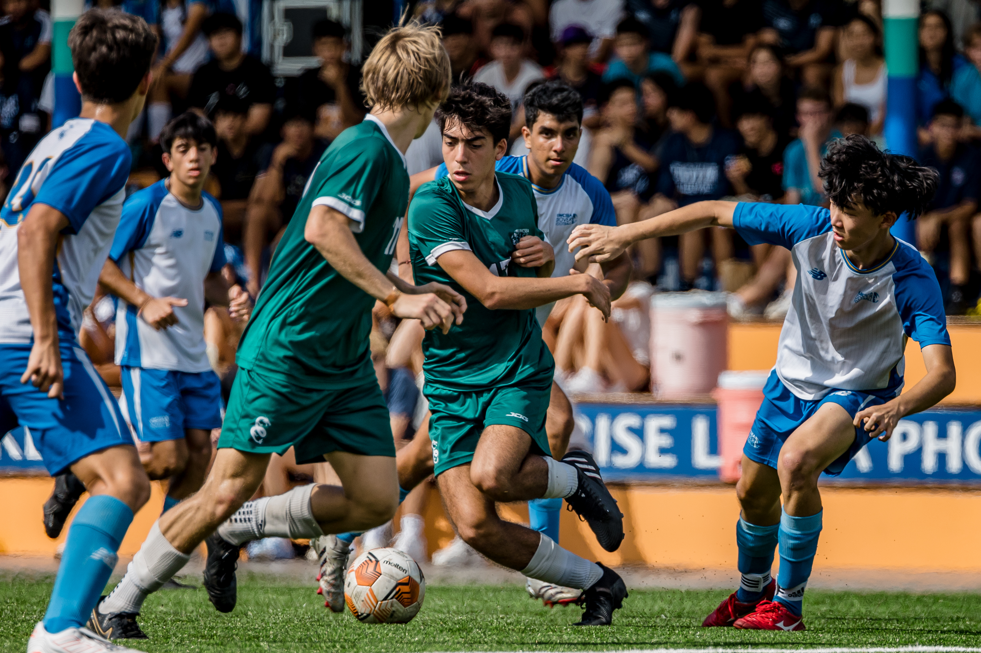 Playgrounds (age appropriate)
Playgrounds (age appropriate)- Theatres
- Music rooms
- Multimedia and recording studios
- Libraries
- Community Lab (East) and Ideas Hub (Dover)
- Olympic-sized outdoor swimming pools
- Infant swimming pools
- Gymnasiums
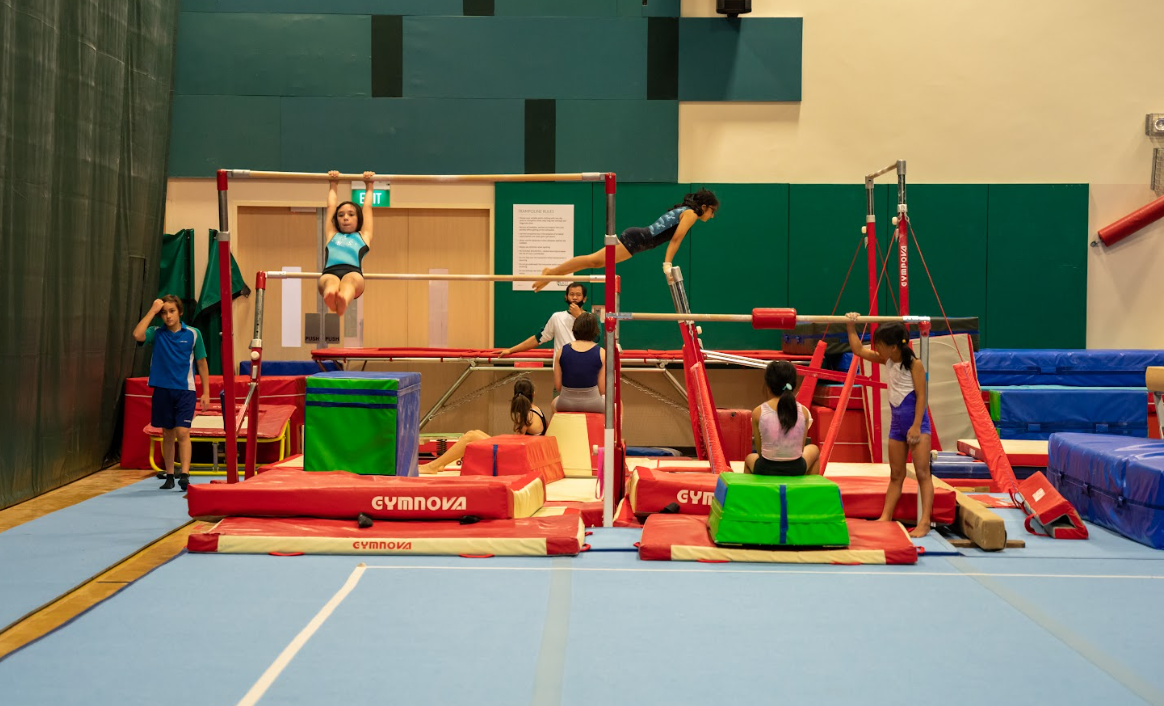
- Climbing walls
- Ropes courses
- Football pitches
- Basketball courts
- Tennis courts
- Dance studios
- Arts centres
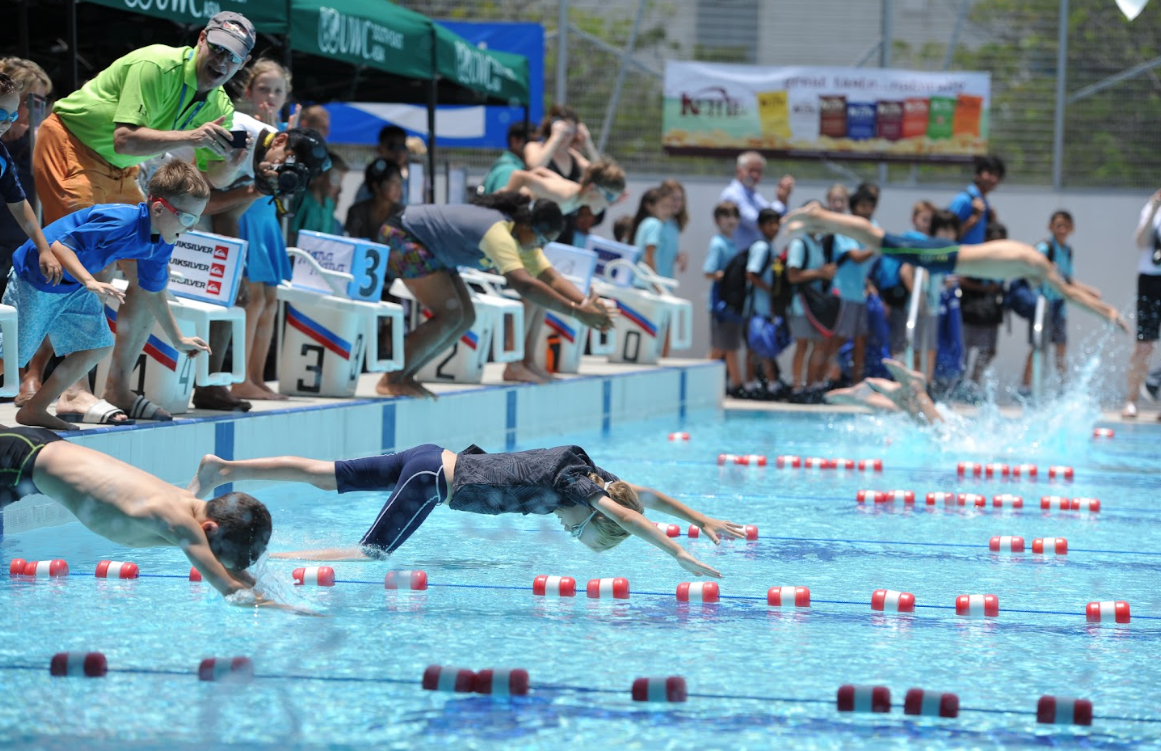 Wellness centres
Wellness centres- Medical centres and sick bays
- Residential Boarding Houses
- Canteens and cafés
- Garden facilities
- PA lounges
Residential accommodation
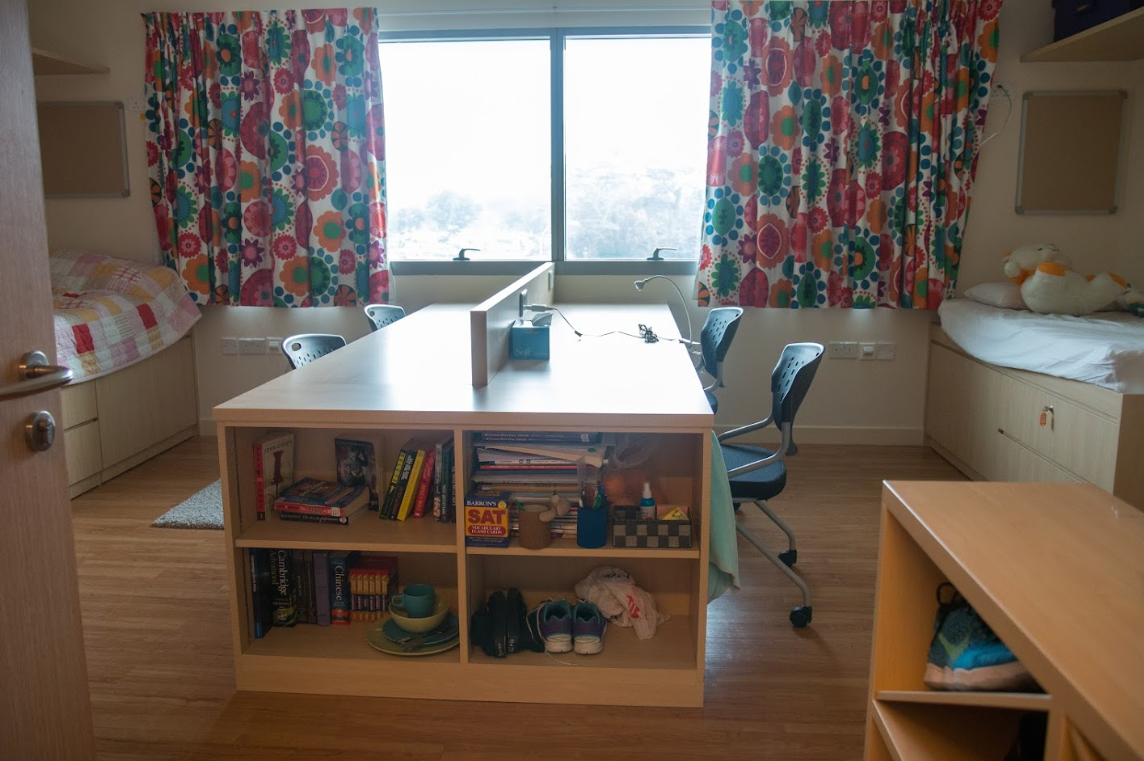 Dover Campus has a capacity for 185 students in its two residential houses. East Campus (Tampines House) has a capacity for 155 students in a single residence. The gender split (50/50) across both campuses is maintained wherever possible and approximately 70% of the students are in the IB Diploma years. Dover residents are in rooms of four with a shared ensuite bathroom. East residents in Grades 8-9 are in rooms of four; Grades 10-11 in rooms of two; and Grade 12 residents have a single room with a sink. Shared, single gender bathroom facilities are located at opposite ends of Tampines House.
Dover Campus has a capacity for 185 students in its two residential houses. East Campus (Tampines House) has a capacity for 155 students in a single residence. The gender split (50/50) across both campuses is maintained wherever possible and approximately 70% of the students are in the IB Diploma years. Dover residents are in rooms of four with a shared ensuite bathroom. East residents in Grades 8-9 are in rooms of four; Grades 10-11 in rooms of two; and Grade 12 residents have a single room with a sink. Shared, single gender bathroom facilities are located at opposite ends of Tampines House.
Medical provisions and wellbeing support
Medical provisions
- Medical clinic with a General Practitioner and registered nurses.
- College sick bays staffed by registered nurses.
- House Parents (parents providing residential support to students) and registered nurses available to help students with follow up medical appointments.
- Hospitals located nearby for emergencies.
Academic and emotional wellbeing
The school supports students’ academic and emotional wellbeing through:
- Wellness and Counselling Centre on both campuses
- Students placed in a mentor group of 16 students under the care of a teacher-mentor
- Houseparents provide support for residential boarders
